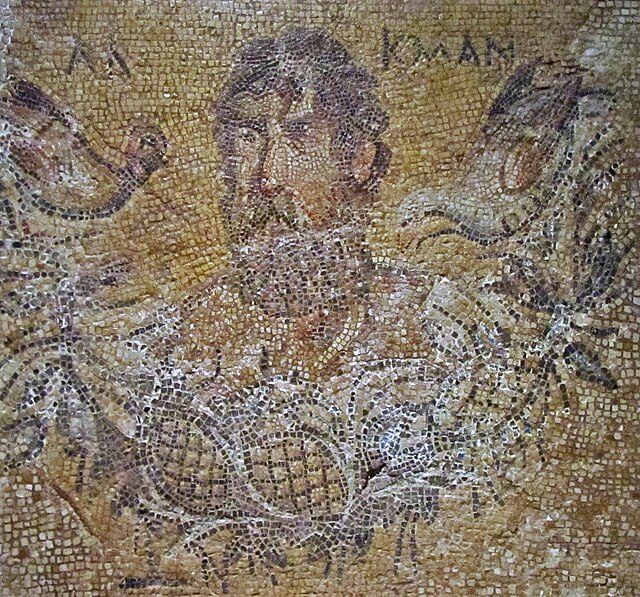Alcman was an Ancient Greek choral lyric poet from Sparta. He is the earliest representative of the Alexandrian canon of the Nine Lyric Poets. He wrote six books of choral poetry, most of which is now lost; his poetry survives in quotation from other ancient authors and on fragmentary papyri discovered in Egypt. His poetry was composed in the local Doric dialect with Homeric influences. Based on his surviving fragments, his poetry was mostly hymns, and seems to have been composed in long stanzas made up of lines in several different meters.
Roman-period mosaic portrait of Alcman from Gerasa, 3rd century AD
P. Oxy. 8 with fragment of Alcman's poem
Common kingfishers mating
Helen, also known as Helen of Troy, in Latin as Helena, beautiful Helen, Helen of Argos, or Helen of Sparta, was a figure in Greek mythology said to have been the most beautiful woman in the world. She was believed to have been the daughter of Zeus and Leda, and was the sister of Clytemnestra, Castor and Pollux, Philonoe, Phoebe and Timandra. She was married to King Menelaus of Sparta "who became by her the father of Hermione, and, according to others, of Nicostratus also." Her abduction by Paris of Troy was the most immediate cause of the Trojan War.
Helen of Sparta boards a ship for Troy, fresco from the House of the Tragic Poet in Pompeii
Helen boards a ship for Troy, fresco from the House of the Tragic Poet in Pompeii
The Love of Helen and Paris by Jacques-Louis David (oil on canvas, 1788, Louvre, Paris)
Leda and the Swan by Cesare da Sesto (c. 1506–1510, Wilton). The artist has been intrigued by the idea of Helen's unconventional birth; she and Clytemnestra are shown emerging from one egg; Castor and Pollux from another.






